Kate Bowler: I’m Kate Bowler, and this is Everything Happens. I’m a historian, author, aggressively, fast walker. But lately, in a world that promises endless progress, even now in a pandemic, I realized I just need to be a person. It’s hard to give up on the feeling that the life you want is just out of reach. If only you tried to eat this food, find that relationship, just get the kids graduated or the parents this kind of care. Only then will I feel different, better, whole. But that’s not the way this works. When I was 35, I was diagnosed with stage four cancer. And here’s the very fun thing about that. The world loves you better when you are shiny, when you are cheerful, when you still believe that your best life now is right around the corner. I’ve written multiple books on the history of the idea that you can always fix your life. So I’m going to be the one to say it. There are some things we can change and some things we can’t. And it’s OK that life isn’t always getting better. We can have beauty and meaning, community and love, and we will need each other if we’re going to tell the truth. Life is a chronic condition and there’s no cure for being human.
Kate: There are two different worlds people inhabit in one world, people feel infinite bounce, and don’t you dare tell them they aren’t invincible. They can climb mountains and homeschool their kids and eat whatever they want and make plans for the next summer and have ample time for themselves. It’s the world of self-help and victory and progress. These beautiful people can see every silver lining, they believe in their bones, things will always get better, that every setback is probably temporary, that hope is just around the corner. Everything adds up. Everything makes sense. But then there’s the other world. The people who know what it means to be on the receiving end of the puppy dog pity face the people who know when a phlebotomist needs to call their supervisor, because at this point, you could find a vein better than that. The people know what it feels like to live, scan, to scan who have sunken eyes and swollen cheeks, who arrange their life around the next appointment, who hold their breath every time the doctor’s number shows up on their phone. The kingdom of the well and the kingdom of the sick, that’s the way Susan Sontag described it and my guest today knows what it means to carry this dual citizenship. Suleika Jaouad wrote the Emmy Award winning New York Times column and video series Life Interrupted, a series she wrote while in her hospital room after being diagnosed with leukemia at age 22. She is also the creator of the Isolation Journals, a community creative project founded during the covid-19 pandemic to help others convert isolation into artistic solitude. And her absolutely spectacular memoir was an instant bestseller, as it should be. It’s called Between Two Kingdoms. And you must read it and you must buy it for others, and you must praise the Lord that it was written. Suleika I have been looking forward to this absolutely forever. Thanks so much for doing this.
Suleika Jaouad: Kate. Thank you. And it’s such a joy to get to talk with you. My only gripe is that I wish we were in the same room. I will make that happen at some point.
Kate: It’s also probably the only thing restraining me for very intense hugging right now. So you may you may you may reconsider that. Your big transition from the before to the after came when you were so little. You were just like a barely formed person. And you so you’re 22 and symptoms start popping up. It was itching and extreme exhaustion. Can you tell me what happened?
Suleika: You know, the funny thing is, of course, when you’re 22, you don’t feel a little because up until that point you’ve spent all of your energies focused on becoming a grown up, even if it’s entirely aspirational, which it definitely was for me. So, you know, I had just graduated from college and taken my first job as a paralegal at a law firm in Paris. And I think like a lot of recent college graduates, I was you know, I had these ambitions, which for me looked like becoming some kind of journalist, but I had no idea how to make that happen. And so I was working and just excited to be abroad. And there is this sense that the future was limitless with possibility, even if I had no idea what I was actually going to look like for me. And I think like a lot of young people, I felt like I had time to figure it out. Time to actualize some of those aspirations. Time to get to know myself. But as it turned out, I didn’t have time. And, you know, looking back, the symptoms had been there for a long time. It had started with this mysterious itch. And I was tired all the time. And I was constantly coming down with colds. And I went to see about half a dozen doctors during those months and they would tell me to get some rest or to take some antibiotics. I was actually hospitalized at one point for a week and released with the diagnosis of something called burnout syndrome. And I think, you know, I had this sense that my doctors weren’t necessarily taking me or my symptoms seriously. But the truth was that I don’t know that it was entirely taking myself seriously. I didn’t feel empowered to push back or to speak up. I think like a lot of young women, you know, it’s difficult in any context at that age to feel like you can say, hold on a second, something’s not right here to question some things, someone’s judgment, but especially in the doctor’s office. And I also think, you know, on some level I had a deeper fear, which was that my fatigue was not evidence of some kind of illness, but my inability to somehow cut it in the real world. I had during my lunch breaks at work, I remember I would sneak off into the utility closet to take naps. And my first thought wasn’t why am I taking naps, is something going on with my health? It was somehow I can’t seem to muster the same sort of stamina and endurance as the other people around me at work. Maybe something is wrong with me on a fundamental level. And so in a strange way, when I actually got my diagnosis as terrifying and heartbreaking as it was, I felt a kind of relief.
Kate: So much of what you’re saying resonates, I think if there is like a video camera of me in the doctor’s office for the first month and then two and then three and then four, you’d see someone who’s, like, laughing a lot and a little embarrassed and, like, trying to be. Charming, like trying to maintain a relationship with a person, just hoping that they’ll take you seriously, but just not sure, not sure if I should be embarrassed to be there or. Yeah. And then the and then the the fear that there’s something wrong and then the fear that if it isn’t, you’re right, that it’s just that it’s just me, that it’s just
Suleika: A character flaw or words that you’ve made it all up in your head.
Kate: Yes. I had something a few years before where they had told me that it was psychosomatic and it was, of course, like a joint disorder that led to paralysis for like almost a year. And they said, you know, the more they’d said I’d made it up, the more I started to feel kind of I guess when the head of psychology tells you you’ve made it up, you kind of you’re like that doctor’s coat seems very authoritative. I should probably believe you. Later on, you’re like, wait a minute. I was right. It was just a joint disorder, you bastard.
Suleika: Exactly.
Kate: The diagnostic language can be such a relief, and then simultaneously it’s almost like it opens up a door to a world that you’ve just been pushed through, I imagine it was really hard to even imagine what the next steps should be.
Suleika: Yeah, it does feel like this portal onto a new world that our new planet that you’re suddenly, you know, deposited on. And, you know, I think at first and you can’t underestimate the overwhelming factor. And I know you know this, but there were so much to wrap our heads around. The disease, what it actually was, the medicalise. I remember, you know, asking for clarification about what certain words meant and like wishing that I had paid better attention in my high school science classes because you had the learning curve for me was really steep. And then feeling embarrassed to ask the same question again, when inevitably I was like so frazzled and overwhelmed that I would forget everything that had been explained to me. And I remember, you know, I think naively and and maybe a little arrogantly believing at first that I was going to be able to remain the same person that I had been. I saw this as a temporary stop in the kingdom of the sick and I was planning not to unpack my bags, not to get too comfortable, I had no interest in going to support groups. I didn’t want to call myself a cancer patient. I didn’t want anything to do with that.
Kate: Totally. Yes, absolutely. This is just like a way station. Thank you. On my way.
Suleika: Exactly. And you know, that first summer I spent it, you know, I spent about six weeks inpatient in isolation in a room. And there were, you know, the first sign for me that it wasn’t necessarily going to go the way I’d hoped I was losing my hair. And, you know, there’s this delayed effect sometimes after certain kinds of chemotherapy. And I remember for those first two weeks of doing chemo every day, I would tug on my hair and make sure that the follicles were still firmly rooted in place. And before entering the hospital, I had actually chopped my waist length hair short into this weird kind of like Moms’ Bob and I began regretting what seemed like a hasty decision to cut my hair short because I believed I was going to be in the tiny percentage of patients who somehow didn’t lose their hair. And that day, I, like you said, it’s these crystaline moments of waking up and seeing this mess of stray hairs on my pillow and kind of compulsively raking my hands through my hair and placing my fallen hair in these little clump like piles on the bedside table in my hospital room. And by the end of that day, I was completely bald. And I think for me, you know, I have I had a disease that was completely invisible. I couldn’t see it or touch it or smell it. And it was the first, you know, outward confirmation of what I knew but hadn’t fully accepted yet. And it was this moment where I understood that my life had irrevocably changed, that I wouldn’t be able to go back to the person I’d been.
Kate: And the hair piece is so personal because I remember thinking, like I don’t ever want to be. If I just get to live, I won’t I won’t complain, I won’t complain, I won’t be vain. I won’t be superficial. I’m not a superficial person. And then to be like, you know, carved up or to be so mad at that port that, like, plastic protrusion. And it’s and just how ugly I thought it looked in tank tops. And I thought like. I just it was hard not to immediately feel guilt every time I was angry at the price, but the price felt like for the first stop felt like it was like, well, am I now not? Pretty? Am I now not like do I not get to have the things that other people have? It felt it felt so stupid to be mad about that, but to me, that felt like the first kind of thing to let go of. That I wasn’t ready to let go of.
Suleika: Of course not. I mean, if I were to meet someone who told me they weren’t even the slightest bit vain, I probably wouldn’t have them in my life because they seemed like an untrustworthy narrator. That makes so much sense to me. And I think the other thing, too, and having an invisible disability or illness is its own challenge. So I don’t want to minimize that. But when you have these kind of outward symbols of illness that are apparent to anyone and not only changes the way you see your own body, but there’s a way in which illness speaks for you before you can say the first word. And I remember that so clearly, like the first time I was out and about in the world, the bald head and like you said, people would make that sad puppy face. Baristas started giving me free iced coffees, which was kind of cool. I wasn’t complaining about that but I felt that kind of pity stare or fear look everywhere I went and I wasn’t Suleika anymore. I was a cancer patient at least to the outside world.
Kate: Yeah. Eclipsed. I was always so pissed off about that, especially because I was like hadn’t I developed some unique qualities like why am I a general? Why am I just like a generalized, sad story? I thought I was like, you know, great with Monty Python references. I thought I’d like figured out these things that made me feel me. And then, yeah, that makes so much sense. And also when you write about the moments where people couldn’t see it, when when you’re when you’re sitting and you’re you’re headed to your appointment and you’re so tired and yet somebody wants you to stand up to surrender your seat to someone else. And in those moments, you’re like. You want it to be seen so people can acknowledge your limitations, but simultaneously like. I imagine it’s it would feel totalizing in the other direction.
Suleika: Totally, it’s a double edged sword in both directions. And I’m sure you’ve had this where like people say, but you look so well. I would go to my doctor’s appointments and they say, oh, you look better. And my mom would interject and say she’s wearing blush. She doesn’t actually look better. And I think it’s true. It’s so hard. I think for especially as a young woman, you want to appear well. Want to rally through your symptoms. You want to present as normal or as normal as can be. And that can be its own kind of trick mirror.
Kate: Yes.
Suleika: Or sometimes the byproduct of that is that people don’t actually understand what it is that you’re living or the limitations or side effects of your illness.
Kate: I used to dress up for appointments like it was like a little job interview. And I was like I wanted I wanted them to push harder for the next treatment. I wanted them to like I wanted them to think I was well so that I would progress as if that was going to do all the work for me.
Suleika: Yeah.
Kate: That’s a bizarre. It’s hard because, you know, when we don’t even know if we’re well at the time, like when you’re an unreliable narrator for yourself and then you’re submitting yourself to a machine that you want to appraise you favorably so you can move forward. It is hard when you don’t know how to trust your own body. And, yeah, when you just can’t know.
Suleika: Yeah, it’s difficult to locate what the truth is, I think whether you’re, you know, pre diagnosis or in the trenches of treatment, like, I remember that for myself, even the question of like, what is your pain on a scale of one to 10? That was always such a hard question for me to answer, and it’s such a relative question because I’m someone will always kind of frown down, and I started to understand that I wasn’t necessarily doing myself any favors by doing that. So I remember telling my nurses at some point, you know, how like probably when you ask someone how many alcoholic beverages and how often you have to multiply by three, well the opposite is true for me.
Kate: Totally. Oh, my gosh. Are you me?
Kate: And you lost so much all at once. I mean, I know you had to make some very difficult decisions early on, just even about fertility in such a short period of time. I imagine it was difficult when so many things, decisions were stacked on, stacked on, stacked to even. To even think about, like, how much you’re losing and what the way forward might be.
Suleika: I mean, I think there are so many things about getting a cancer diagnosis when you’re young or really at any age that feel profoundly absurd and surreal. And kind of to my surprise, the actual diagnosis wasn’t the most surreal of those experiences. It was all the kind of micro and macro decisions that kind of dribbled out of that diagnosis that were some of the most difficult for me to make decisions about. So, yeah, for example, one of the first things I learned during a late night Google search was that one of the side effects of the chemo I was slated to begin later that week would make me infertile. And it felt like such a breach of trust and the doctor patient relationship that I hadn’t heard this from them first. And they explained to me that they hadn’t mentioned it because they didn’t want me to delay chemo, to undergo fertility preservation treatments. And for me, that was actually like one of the first times that I did kind of locate my voice and speak up. And I told them very clearly that any decision regarding my body. Was one that I wanted to be an active participant in, and, you know, at that age, I had no idea if I wanted to be a mom. The most thought that I’d ever given to motherhood was how specifically not to become one before I was ready. But on some level, I think I knew that I wanted to preserve that choice for my future self. I wanted to do everything I could to keep that option available. And in the end, I didn’t make the difficult decision to pursue that fertility preservation treatment. But within that emerged its own impossible Sophie’s Choice, because I very quickly began to understand and to learn about the question of eggs versus embryos and embryos have a higher chance of success. So I began to think about how if I was kind of putting my life at risk by doing these fertility preservation treatments, then I wanted to go the route with the greatest chance of success. But then, of course, the question became how to make those embryos. And so within each of those decisions was like its own little microcosm of impossible questions and impossible choices. And nobody can give you a guidebook for that and nobody can prepare you for that.
Kate: Yeah. There’s like such a world in each one of the categories you just laid out, I imagine, like you’re like I’m I’m barely an adult. I can’t rent a car like how am I supposed to figure out. Not only like if I if I want to preserve the option of having a kid, but then what this what this choice will cost me and then who it would cost me with at the same time.
Suleika: Yeah. And I know you know this, but. I always think it’s important to kind of emphasize that when someone gets a diagnosis, it doesn’t just happen to them and it doesn’t just fracture your own life. It fractures the lives of your family, of your friends, of your caregiver, if you’re lucky enough to have a caregiver. And that was true for me. Suddenly at the time, I had a boyfriend who was a very new boyfriend. We’d been dating for a couple months. And there we were, you know, discussing the pros and cons of eggs versus embryos with my parents who he’d met for the first time the week after my diagnosis. It was truly awkward and uncharted territory for everyone.
Kate: Oh. Oh. Oh, my God. Yeah, I doubt there’s like a Cosmo article about like, so he just met your parents now you’re not sure if you want him to father your children in the future when you get there. Oh my gosh.
Suleika: You and I could write that version of a Cosmo.
Kate: Absolutely. If/then. You’re feeling excited. Oh my gosh. Yes. Yeah. And I mean I, I also read in the fine print that I, I mean, it was it was totally an afterthought in my cancer treatment that like, Oh, does this mean I don’t get to have I thought I’d be able to have another baby and the the long terrible silence around that, the demand that I would, you know, have to show proof of birth control or else I would not be able to have access to the drug. Yeah, just world’s world’s end and you just. Yeah, you think that you start something and that you have time to make other choices after it, and then it seems to all just sort of be an avalanche of choices that are no longer choices.
Suleika: Yeah, well, and, you know, the irony of that is that’s true of everyone. Whether they’re sick or they’re well or they’re are somewhere in between. I didn’t know this because I was twenty three and none of my friends were having babies, but now that I’m thirty two, I see friends of mine who have been operating under the assumption that they can have children who haven’t been able to, who are also having to reimagine how they conceive of motherhood or a family. And even though you know the knowledge that I likely won’t be able to carry children or have my own biological children is one that I’ve had to grieve in a way that I keep grieving as I get older, because it feels more real to kind of upside of that without being over romanticizing it is that. I know. And so I have no illusions that this is going to be some, like organic process, that it’s going to require planning and decision making. Though, of course, I wouldn’t have chosen to be this way. I have a sense of agency that I wouldn’t have otherwise. I get to look at my calendar over the next couple of years and think to myself, like, if I want to do this, when do I want to do it? How do I want to do it? Do I want to adopt do I want to be a foster mom? Do I want to be a really cool godmother or aunt? Yeah, but none of us know. None of us ever know.
Kate: How dare you. That takes away the entire premise of the self-help industry Suleika that we can always fix our lives. So if you say things like that, a billion dollar industry will collapse. Every time you say something. I always want to slow down and let it sink in because it feels so good to be around you and it feels so good to read your beautiful words because you are you’re very gentle with how what what it means to live without these kinds of very lovely illusions, like the illusion of infinite choice, the illusion of every having, every imagined future. Those are all things that we often keep as just a lovely shimmery fog in front of us that prevent us from seeing, you know. Not in a depressing way, but not in a in a romantic way, but just the world as it is.
Suleika: I appreciate that and, you know, I think the truth is that that gentleness is learned for me because I’ve done the opposite of that, which is not necessarily like the woe is me self-pity version of how we can experience, you know, these sort of life altering interruptions, be it. Yeah. An illness or some other kind of heartbreak that brings us to the floor. But. I think for me, especially in that first year after my diagnosis, I was so angry and we don’t talk a lot about rage, especially as women, it’s not like a palatable way to move through the world for a lot of people. But my rage was alive in a way that I’d never experienced before. And it was really unsettling to me. I felt like a kind of sundering happening in me. And there was like the version of myself that I wanted to be who was like stoic and brave and trying to make the best of these terrible circumstances in this new version. I was angry and felt profoundly stuck and resentful of, you know, the doctors who are administering my chemo medications. The phlebotomist who would not be able to get a blood drawn would have to stick me in a couple of times. My mom, who administered these really painful clinical trial drugs that I had to take and none of it was rational because I knew that all of these people were trying to help me. I knew that the Hallmark cards and, you know, all these kind of bumper sticker platitudes, that everything happens for a reason type sayings that people would like. I knew all of that was there from, you know, with the intent of helping me. But almost has its own logic and the body has its own muscle memory, and it remembers who hurts it and none of it is logical all logic falls out the window.
Kate: I think. Just the hunger, the hunger to live. That felt also to me like anger, because it just like I. I just wanted more and I wanted it just felt wrong to pretend that I was just going to be fine with, like, just snacking and then letting it all go
Suleika: And, like, grateful for what you have.
Kate: Oh, thanks so much. No, no, no. I’ll just go quietly into this good night.
Kate: Sometimes to me also just the rage feels like the only way to tell the truth, like for me it was I’m too young, my kid is too little. My kid won’t remember me. I do this and it all goes away. And I just like that went from hunger to anger to hunger again. And it just felt like everything was. standing in the way.
Suleika: Yeah, I feel that so deeply and the other thing I remember so distinctly is hearing about cancer survivors who had gone on to do incredible things, who had run marathons, who had written books, basically the kind of cancer survivors that you and I have become. And I remember like hearing those stories and being livid because they made me feel so shitty about myself, because at that time I wasn’t doing anything. I couldn’t read a book. I think the only book that I read during that first year was the 50 Shades of Gray trilogy, because it was like so far beyond my reality, so far beyond the pale. But it was kind of funny to me. But I didn’t feel productive. I didn’t know how to make meaning of my circumstances. I didn’t feel well enough to write, at least not in those early couple of months. But I felt this pressure to be someone who suffers well, who is able to make something of illness or of my terrible circumstances. And that’s a whole lot of pressure when you’re new to something when your life has been completely upended and you’re not just trying to figure out how to get through it and focus on the day to day survival. But then there’s this kind of added layer of wanting to be a grateful patient, a brave patient, and beyond that, a productive one.
Kate: I don’t know about you, but this is a conversation I need to sit with for a while, Suleika writes, death never comes at a good time, but getting a death sentence when you’re young is a breach of contract. She describes so well what it feels like to have your future ripped from your hands, what it means to be sick in a world that loves you better when you are good, better, best what it means to know a before and an after and realize that you can’t go back to who you were, no matter how hard you try. If you are sitting here basking in Suleika’s gorgeous and honest language, I have some good news. This conversation was just too dang good to cut, so we made it into two episodes. Tune in next week to hear the rest of my conversation with Suleika, where we’ll talk about resenting loved ones who go MIA and finding mercy for them and ourselves somehow. But until then, here’s a little blessing for you, my dear. You who lost too much too quickly.
Kate: Blessed are you sitting among the shards of what could have been. It’s broken now, that dream you loved and it spilled out all over the ground. Blessed are you letting your eyes look and remember all the hope you once had. All the love, all the beauty, all the future selves. You could have been. Blessed are you telling your tears they can flow, telling your anger, it can speak. Letting this loss speak all its terrible truth to your soul. Blessed are you, when mourning is the holy work of the moment, for it speaks of what is real. Blessed are we who mourn saying let me stay here in grief’s cold winter for as long as it takes. That morning might be, to our hearts, the gentlest springtime. Let the thaw come slowly as we learn to live here in what is possible today.
Kate: Don’t miss an episode. Subscribe to Everything Happens wherever you listen to podcasts. Oh, and also I have a new book coming out this fall. It’s called No Cure for Being Human and Other Truths I Need to Hear. And it’s a book for all of us, the fragile ones, learning how to live with courage and hope in the midst of so much uncertainty. To learn more, see the absolutely beautiful cover and preorder head over to Nocurebook.com. That’s NoCureBook.com. Today’s episode was made possible by our partners Lilly Endowment, the Duke Endowment and Duke Divinity School, who support our faith and media project. We are so grateful for their generosity and investment in what we do. And of course, my perfect team, Jessica Richie, our executive producer, Harriet Putman, our associate producer, Keith Weston, our sound designer. And the rest of the Everything Happens crew who make this project so much fun. Dan Wells, AJ Walton, Mary Jo Clancy, J.J. Dickinson, Launa Steward, Kelly Dunlap, Erin Lane, Jeb and Sammi. Thank you. This is Everything Happens with me, Kate Bowler.
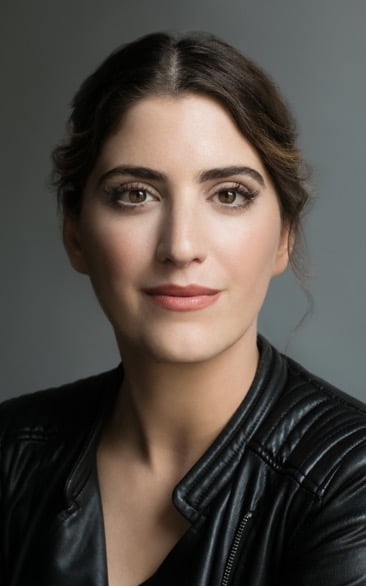

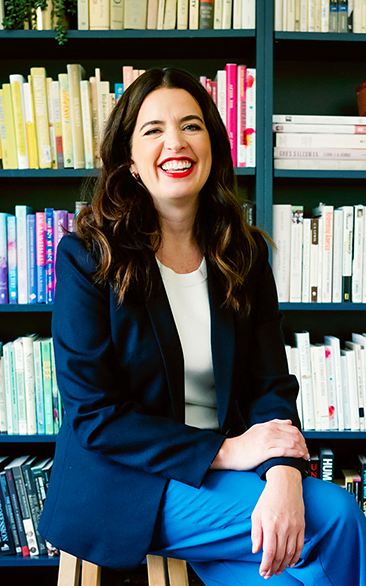


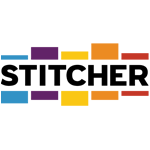





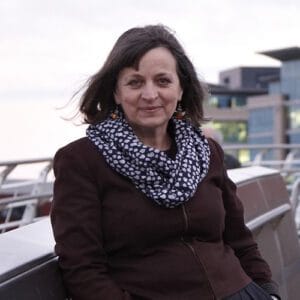
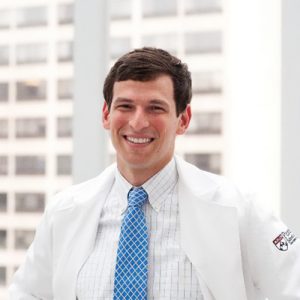
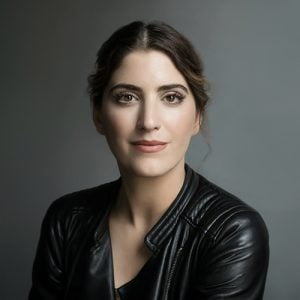
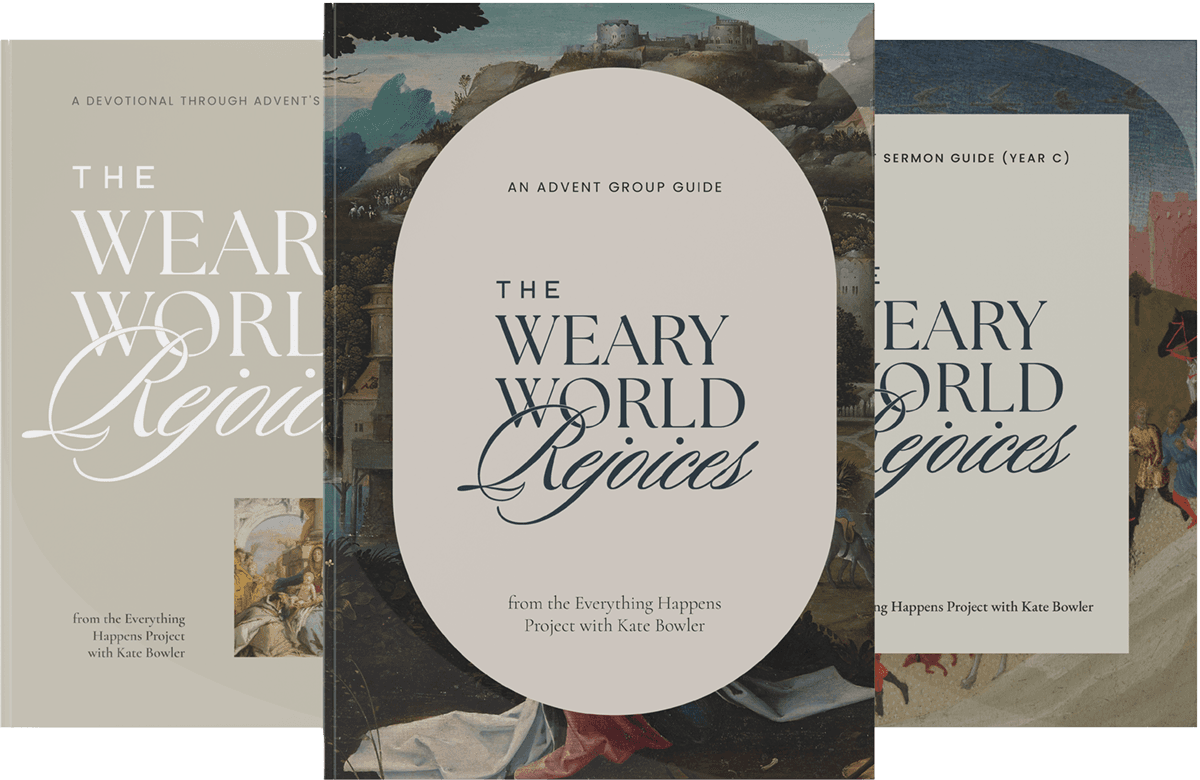
Leave a Reply